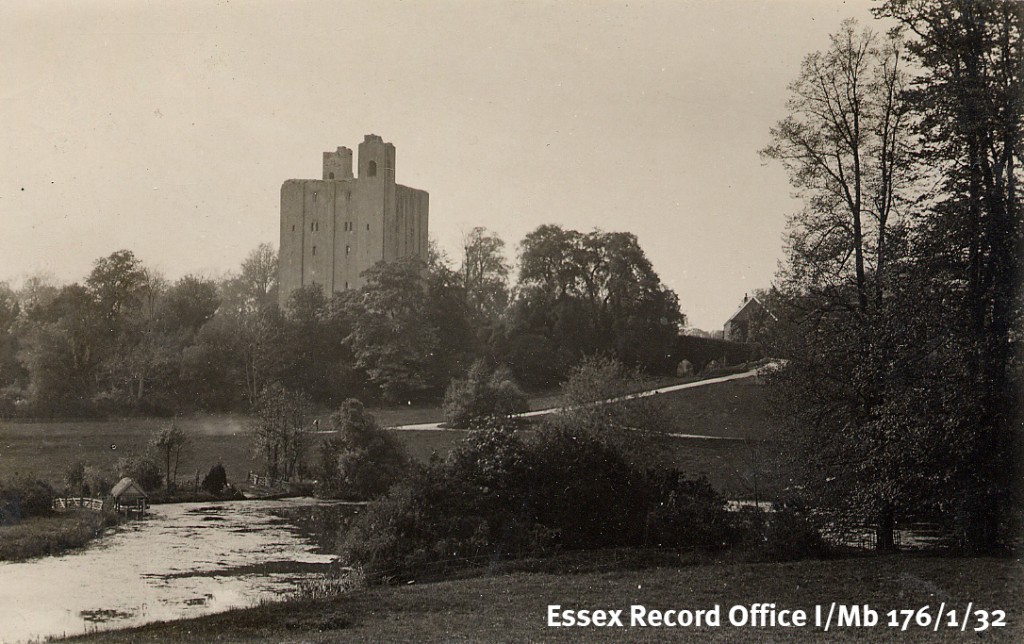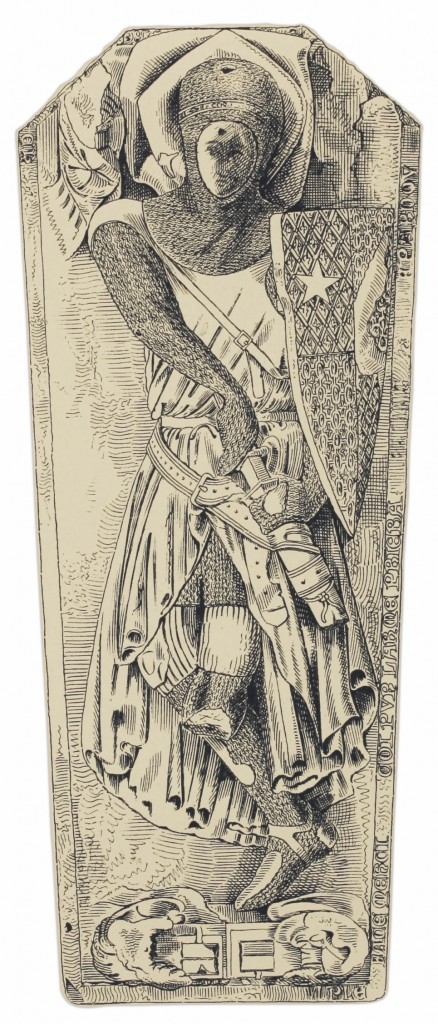In almost our last blog post in the run up to Magna Carta: Essex Connections on Saturday 23 May, we take a look at some of the fighting that occurred in the county as a result of the unrest between King John and the rebel barons in 1215.
Within a few weeks of King John’s meeting with the barons at Runnymede on 19 June 1215 it was evident that Magna Carta had not brought peace. The king started to recruit mercenaries from overseas and the barons in turn refused to surrender London.
The barons went to France and offered the crown to King Philip’s son Louis. At the end of November Prince Louis sent a small army to help the barons; they landed in the Orwell estuary and marched on London
King John divided his force into two, setting off north with part of his force. The chronicler Roger of Wendover described the king’s campaign in the north:
The whole land was covered with these limbs of the devil like locusts, who assembled to blot out every thing from the face of the earth: for, running about with drawn swords and knives, they ransacked towns, houses, cemeteries, and churches, robbing everyone, sparing neither women nor children.
The other part of the forces under Savary de Mauléon (one of the king’s mercenaries) and the Earl of Salisbury (John’s half-brother) headed into Essex. The chronicler Ralph of Coggeshall described the effect of the royal forces in the county. By Christmas Eve they were besieging Geoffrey de Mandeville’s castle at Pleshey and from there the royal forces were laying the surrounding countryside to waste, demanding money and men and burning houses, destroying parks and cutting down trees.
On Christmas Day 1215 one of these raiding parties broke into Tilty Abbey during mass, destroying furnishings and breaking open the cellars and carrying away items stored there which had been deposited by merchants.
A week later on 1 January Ralph of Coggeshall described how they broke into his own abbey at Coggeshall, and stole 22 horses belonging to the bishop of London, the treasurer, the monks and others.
Savary de Mauléon went on to besiege Colchester Castle in January 1216, retreating to Bury St. Edmunds when he heard that the barons were heading towards Colchester.
Following the conclusion of the king’s campaign in the north, he headed south to Essex. By the end of March both Colchester and Hedingham Castles had surrendered to the king. In May 1216 Prince Louis landed in England with a larger French force. In the next few months, three forces ranged through Essex – the army of the king, the barons’ forces led by William de Mandeville, Earl of Essex (brother of the recently dead Geoffrey de Mandeville), Robert FitzWalter and William de Huntingfield (another Magna Carta baron) and a mostly French force, supporting the barons.
On 19 October 1216 King John died at Newark. His eldest son Henry III (aged 9) was crowned at Gloucester Cathedral as the barons and Prince Louis still controlled London. The regent for the king was a much respected baron William Marshal, Earl of Pembroke. Marshal gradually persuaded many of the barons to support the king. In May 1217 the remaining barons were defeated at the Battle of Lincoln, with many being captured, including Robert FitzWalter, Richard de Mountfitchet and Gilbert de Clare. On 11 September 1217 the Treaty of Lambeth was agreed, with Prince Louis agreeing to give up his claim to the English crown. As well as settling with the French, the treaty made peace with the barons; Richard de Mountfitchet, for example, not only regained his lands, but also his custody of the forest of Essex.
Find out more about Essex connections with the Magna Carta with us on Saturday 23 May.
Magna Carta: Essex Connections
To explore the significance and legacy of this famous document, both nationally and for Essex, join us for talks from:
- Nicholas Vincent, Professor of Medieval History at the University of East Anglia, who has been leading a major project researching the background to Magna Carta
- Katharine Schofield, ERO Archivist, on Essex connections with Magna Carta and the impact it had on the medieval county
Saturday 23 May, 1.15pm for 1.30am-4.15pm
Tickets: £8, including tea, coffee and cake
Please book in advance on 033301 32500



